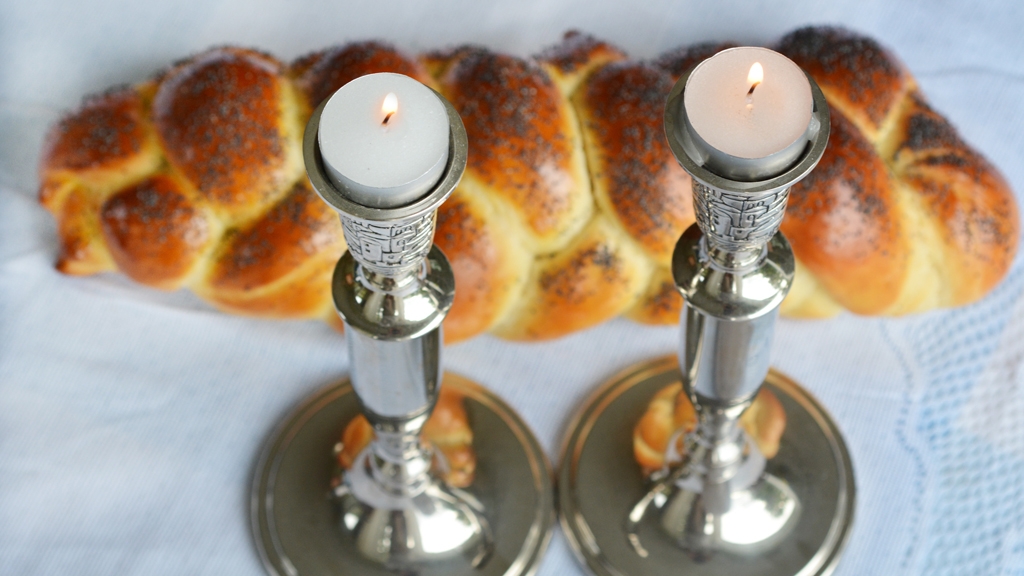Question: How early can one light candles to bring in Shabbat or a Jewish holiday?
–Lucy, Birmingham
Answer: Well Lucy, it’s all relative. Relative to what, you ask? Allow me to explain.
The rabbis who wrote the rules about this kind of thing didn’t have wristwatches, so they couldn’t tell their communities, “You can start lighting candles 45 minutes before sundown” because people didn’t have a great way of measuring 45 minutes. So the rabbis made rules about time contingent on what’s called proportional hours. To figure out how long a proportional hour is, you take the length of the daylight on that day, and divide it by twelve.
With your help, My Jewish Learning can provide endless opportunities for learning, connection and discovery.
So for example, on the day that I’m writing this the sun rises at 5:34 am and sets at 8:12 pm. That adds up to 878 minutes of daylight. When divided into 12 proportional hours, each “hour” has 73.16 minutes (73 minutes and about 10 seconds).
Still with me? When the rabbis calculated times for religious obligations—like the earliest you could say Shaharit, the morning prayers, or the latest you can light Shabbat candles—they calculated using proportional hours. Two thousand years ago this was probably a somewhat taxing activity, but today we have the internet, and even myzmanim.com, that allows you to plug in your location, and then tells you all the important halakhic times of the day.
One of the things you can find out at myzmanim is the time of what’s called Pelag Hamincha. Pelag Hamincha is 1.25 proportional hours before sunset. And Pelag Hamincha is also the earliest time that you can light candles to begin Shabbat or a holiday. So today, Pelag Hamincha is at 6:40 pm (1.25*73.16=91.45. 91 minutes and 30 seconds before 8:12 is 6:40 and 30 seconds).
I asked Rabbi Micha’el Rosenberg, the rabbi of the Fort Tryon Jewish Center, why Pelag Hamincha was chosen as the earliest time for candlelighting, and he said, “The reason that this time is used as the earliest for beginning Shabbat and holidays is that some authorities view it as already the beginning of night, such that even if we don’t generally accept that position, you can see how it feels close enough to nighttime to feel like we’re already there.”
That said, Rabbi Rosenberg also pointed out that there are some instances in which Jewish law forbids beginning Shabbat or a holiday early. He said, “If a holiday immediately follows Shabbat (i.e. it starts Saturday night), one cannot end Shabbat early to bring in the holiday, since there are things forbidden on Shabbat that are permitted on the holiday (e.g. cooking for one’s needs for the day), and were you to begin the holiday early you could end up cooking on Shabbat. Similarly, for Jews who observe two days of Yom Tov, the second day may not be begun early. Finally, there are some customs about not starting the first night of Passover early, and there is also a custom of not beginning Shavuot until the stars are out, so that you can have ‘seven full weeks’ of counting the Omer.”
It might be too early to light candles right now, but it’s definitely not too early to begin making dinner, so if you’ll excuse me, I’m off to the kitchen!
Shabbat
Pronounced: shuh-BAHT or shah-BAHT, Origin: Hebrew, the Sabbath, from sundown Friday to sundown Saturday.



